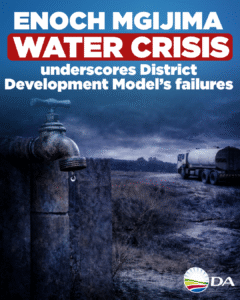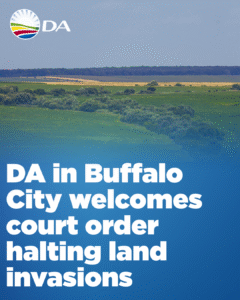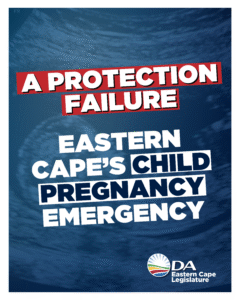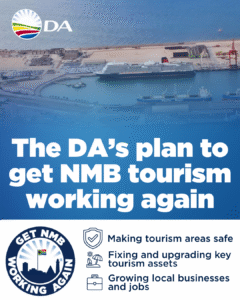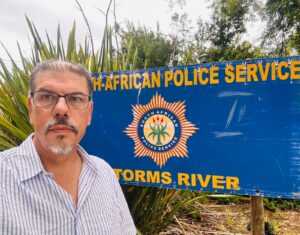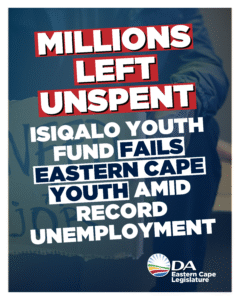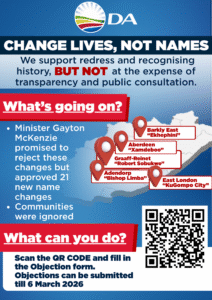Please find attached soundbites in English and Afrikaans by Cllr Dries van der Westhuizen.
Two of Nelson Mandela Bay’s main supply dams, the Churchill and Impofu, are set to be depleted by the end of May, and large parts of the metro will have no reticulated water. And the Metro appears to have no emergency plans in place for when Day Zero arrives.
Although we must avoid large scale panic in these areas, affected residents and business have a right to know what contingency measures have been put in place to provide them with potable water.
The DA is committed to doing everything it can to ensure the best outcomes for all the residents of Nelson Mandela Bay. We may not be in government but that will not stop us working day and night in the interests of the residents in this looming crisis. We believe the only way of preventing the imminent disaster is to drastically reduce water demand from 280 Ml a day to 230 Ml a day. If we are able to reach this target, we should theoretically be able to stretch our remaining water supplies until end of October 2022.
In an effort to drastically reduce our water demand and save residents from disaster, the DA has put together a Day Zero plan that includes the following:
- Emergency measures must immediately be implemented to force down consumption. These measures include:
- Leak repairs.
- Increase the number of meter readers.
- Appoint a water law squad.
- Close schools during periods of no activity.
- Increase the installation of throttling devices.
- The establishment of a high consumer call centre.
- Increase the percentage of water to be recycled at car washes to 80%.
- It is also critically important that emergency measures are implemented to increase supply. These include:
- Investigate and apply additional capacity from the Nooitgedacht Water Scheme.
- Fast track boreholes that are close to the dams and do not require water treatment facilities.
- Untreated water to be mixed with treated water, from boreholes and springs.
- Repair the Cape Recife Reuse system that feeds the Nelson Mandela University and golf courses.
- An emergency desalination plant to be constructed by national government.
- An emergency desalination plant at the Fish Water Flats Waste Water Treatment Works.
- An improved municipal communications strategy that will focus on:
- Daily Public Briefings on the progress on the various aspects of the drought.
- The appointment of a Drought Spokesperson.
- Launching a “Whole City Campaign” to ensure that residents understand that we are all in this together.
- Complete transparency by the municipality regarding the water crisis is critically important.
The Metro must appoint an interim MMC for Infrastructure and Engineering so that this portfolio committee can function as prescribed by law. The position of the present MMC is uncertain and not a single Water and Sanitation Portfolio Committee meeting has been scheduled since November 2021. To ensure transparency the Metro must commit to the following:
- It is vital that residents, the business sector, hospitals, schools, the airport and more, are informed which areas will be affected, and when, so that they can start making alternative and emergency plans.
- Officials must explain the impact on our reticulation system at various stages of the drought.
The DA will do whatever it takes to ensure that residents are not left high and dry in this time of need.
